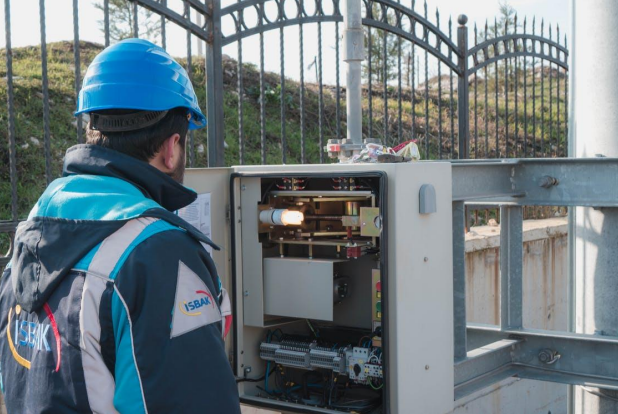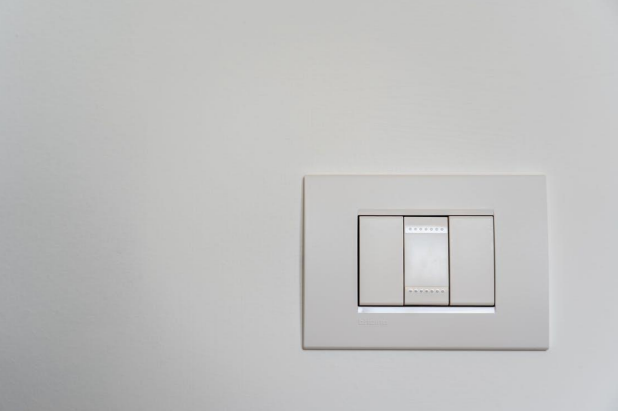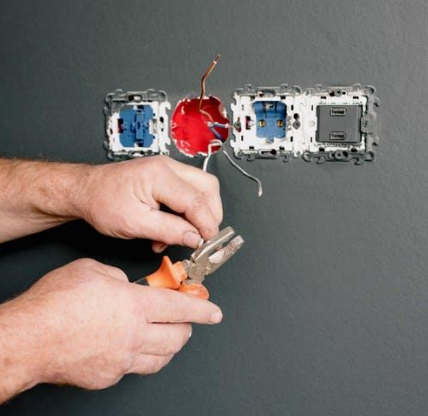Electrical faults of any sort are the worst kind of home maintenance issue you can have. They rank ahead of issues like water leakage, flooding, or even a faulty foundation for two main reasons. Electrical problems are notoriously difficult to detect and are deadly.
Almost all of a home’s electrical circuits are hidden within its walls and this makes it incredibly hard to tell when issues are going on with the wiring. Moreover, even when there are clear signs of electrical malfunction, those signs are often hard for untrained eyes to interpret.
In addition to this, the margin for error is almost non-existent when dealing with electrical faults. The risk of serious electric shocks, severe burns, or even death is very real. Electrical faults are also a major cause of avoidable house fires every year across the United States.
As the owner of a rental property, it makes sense to understand the telltale signs of electrical problems in your property. Knowing these signs and educating tenants on how to detect the early warning signs of electrical issues in the property will save you a lot of heartaches.
What are the signs that the electrical wiring in your rental property is in trouble? This article discusses five of the most important signs to look out for and what to do about them. The advice in this post can potentially save you and your tenants from electrical disasters.
5 warning signs that your rental needs an electrician
1. Circuit breakers tripping frequently

The electrical system in your home has a failsafe mechanism that helps prevent adverse results when there is a problem with the wiring. Circuit breakers and fuses play this role by interrupting the flow of electricity, thereby protecting your rental, its contents, and the tenants in the home.
Circuit breakers should only trip occasionally and you should not have to deal with fuses blowing out often. If the circuit breaker in the home starts to trip frequently, it is a sign of underlying issues with the system and not just a circuit overload.
If your tenant complains that fuses are blowing out and that the circuit breaker keeps tripping off, please contact your electrician.
2. Dimming or flickering lights
The lights in a rental may flicker or go dim for any of the following reasons: faulty light bulbs, loose light plugs, a drop in voltage (because an appliance is pulling more current when you start it), faulty wiring, faulty light switch, loose bulbs, using the wrong bulbs, and faulty switches.
If the lights are flickering across the entire home, you can be sure the problem is not with the bulbs or switches but with the rental’s electrical circuits. If the issue is isolated to a room, it is probably just an issue with the bulb or switch. In this case, you simply need to change the bulbs, but if the problem persists, call an electrician.
Are your lights flickering or dimming? We can help!
3. Noisy, charred, or discolored switches and outlets

If you hear a buzzing or hissing sound inside your walls or when you turn on a switch or use an outlet, it is a sign that the wires inside the walls, outlet, or switch are burning. You may also hear sparking sounds from the outlet or switch.
The electrical wiring in your rental should not make sounds when they are in use. If they do, you have a problem. Along with sounds emanating from these features, if there charring or discoloration on outlets or switches, you need an electrician to investigate the issue because you may have more than a simple problem of faulty outlet or switches.
4. Strange odors in the home
The odor most associated with burning electrical wires is the smell of burning plastic. This odor could originate from melting switches and outlets, or it could come from the insulation around the wiring inside your walls.
In addition to the smell of burning plastic, another odor to expect when there are issues with the components of your electrical systems is the smell of fish. Nine times out of ten, a fishy odor in the home is a sign of overheating wiring, outlets, switches, and circuit breakers. The smell of heated metal is also common when electrical components are overheating.
5. Shocking switches, outlets, and components

The odor most associated with burning electrical wires is the smell of burning plastic. This odor could originate from melting switches and outlets, or it could come from the insulation around the wiring inside your walls.
In addition to the smell of burning plastic, another odor to expect when there are issues with the components of your electrical systems is the smell of fish. Nine times out of ten, a fishy odor in the home is a sign of overheating wiring, outlets, switches, and circuit breakers. The smell of heated metal is also common when electrical components are overheating.
Shocking switches, outlets, or appliances? Don't risk safety hazards.
Arrange for an electrician to inspect and replace faulty components.
Finally, bear in mind that electrical problems in your rental property do not lend themselves well to DIY efforts. If there are issues with the home’s electrical systems, for the safety of your tenants, and your investment, please contact a qualified electrician


